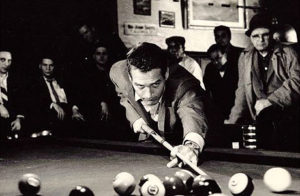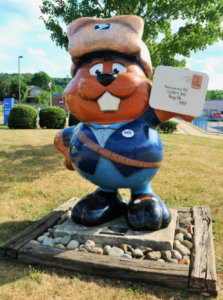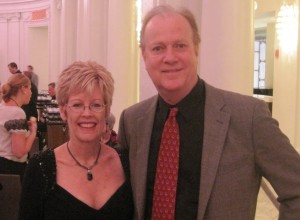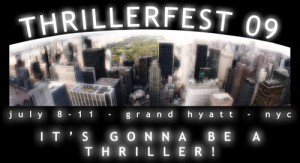by James Scott Bell
@jamesscottbell
Jessica Strawser, editorial director of Writer’s Digest magazine, and soon-to-be debut novelist, tweeted this from the recent WD conference in New York.
The day you think you know what you’re doing is the day you’ve lost your edge as a writer. @davidbaldacci #WDC16 pic.twitter.com/R2pCAVG3vs
— Jessica Strawser (@jessicastrawser) August 13, 2016
I agree. The dread mistake is called “mailing it in.” It’s when you think you’ve reached a certain point in your writing where you don’t have to improve. You’ve had some success, so why sweat and strain?
That’s not how a real writer thinks. How do I define a real writer? It’s someone who honors the craft and never settles. The real writer always sets the bar a bit higher than the last jump.
Mailing it in sometimes afflicts even the A list. A series that catches on in a big way can afford the author the opportunity to spend more time on a yacht than behind a keyboard. I’ve seen that happen a couple of times, and it’s not pretty.
On the other hand, you have a writer like Dennis Lehane. There he was with a popular PI series that he could have sat on. But then he proceeds to write one of the great stand-alone crime novels of our time, Mystic River. Not content with that, a few years later he writes an epic historical called The Given Day. I’m not sure he meant this to be a series, but I suspect the popularity of the novel gave rise to the idea. Now that series character, Joe Coughlin, is going to get the Ben Affleck treatment in a major motion picture.
I like what the Amazon “best books of the month” reviewer said about the second Coughlin book, Lived by Night: “Incredibly, Lehane … becomes more masterful with each book…”
That’s the kind of accolade for which a real writer strives. Because, you see, there is a joy and a satisfaction in the striving itself. The mail-it-inners don’t have that anymore. It’s a loss to the soul.
 I’ve referred several times to that speech Paul Newman makes in The Hustler, one of my top ten favorite movies. He is “Fast Eddie” Felson, low-level pool hustler whose been told he’s a “born loser” by the satanic gambler played by George C. Scott. One day he describes to his girl, Sarah, what the game of pool feels like when “he’s really going.” It’s…
I’ve referred several times to that speech Paul Newman makes in The Hustler, one of my top ten favorite movies. He is “Fast Eddie” Felson, low-level pool hustler whose been told he’s a “born loser” by the satanic gambler played by George C. Scott. One day he describes to his girl, Sarah, what the game of pool feels like when “he’s really going.” It’s…
…like a jockey must feel. He’s sittin’ on his horse, he’s got all that speed and that power underneath him… he’s comin’ into the stretch, the pressure’s on ‘im, and he knows… just feels … when to let it go and how much. Cause he’s got everything workin’ for ‘im, timing, touch… it’s a great feeling, boy, it’s a real great feeling when you’re right and you know you’re right. It’s like all of a sudden I got oil in my arm. The pool cue’s part of me. You know, it’s a pool cue, it’s got nerves in it. It’s a piece of wood, it’s got nerves in it. You feel the roll of those balls, you don’t have to look, you just know. You make shots nobody’s ever made before. I can play that game the way nobody’s ever played it before.
Sarah looks at him and says, “You’re not a loser, Eddie. You’re a winner.”
Eddie looks at her quizzically. And she says, “Some men never get to feel that way about anything.”
Get it? Don’t ever settle for mailing it in.
Now how do you get to that “Fast Eddie feeling”? These things work for me:
- Read widely, not just in your preferred genre. I love reading great writing, fiction or non-fiction. Right now I’m reading three books at the same time (do you do this?) I’m reading L.A. Noir by John Buntin (about Chief of Police William Parker and mobster Mickey Cohen, and the battle for Los Angeles); a collection of short stories by John O’Hara; and a two-volume biography of Andrew Jackson published in 1938 (elegant prose here of the kind we rarely see anymore).
- Be intentional about studying the craft. What I mean is look for books and articles and blog posts on specific subjects that are chosen to address your own writing needs. I break down the craft into what I call “seven critical success factors” –– plot, structure, characters, scenes, dialogue, voice, and meaning (or theme). I advise you try to locate your weakest area and design a self-study program that lasts a minimum of six weeks. Read books and articles on the subject, and do practice writing. Get feedback on your exercises. What if you took the next year and set out to raise your game in each area? What if you designed seven 6-week courses for yourself? (If you would like a ready-made course of study, I do have one available). Your growth will be tremendous. You’ll feel it. Just like Fast Eddie.
- Be a risk taker. Go to new places in your writing. You don’t have to jump genres if you’re trying to build a brand. But do something more, different, deeper in your next book.
Early in his career Dean Koontz was rolling along writing bestselling paperback thrillers under several pen names. But he wasn’t satisfied. So he set out to deepen his characterizations. He studied up on psychology and used what he learned to write Whispers. Would his wide audience for fast-paced thrills like it? It was a risk … and it became Koontz’s first New York Times bestseller.
So keep the edge. Make the writing itself (not just the results) the object of your affection. That way you’ll leave behind no regrets when your personal mail is delivered by the groundhog.


